Monaco, officially the Principality of Monaco, is a sovereign city-state and microstate located on the French Riviera in Western Europe. Bordered by France on three sides and the Mediterranean Sea to the south, it is the second smallest sovereign state after Vatican City and the most densely populated. Its population is approximately 38,423 within an area of just 2.08 square kilometers. Monaco's coastline is the shortest of any non-landlocked nation, measuring only 3.83 kilometers. French is the official language, but Italian and Monégasque are also widely spoken.
1911: Beginning portions of the Monte Carlo Rally
Since 1911 the ending portions of the Monte Carlo Rally has been held in the principality, originally held at the behest of Prince Albert I.
1925: St Paul's Church dedicated
In 1925, St Paul's Church, the Anglican church located in the Avenue de Grande Bretagne in Monte Carlo, was dedicated.
1928: AS Monaco Basket founded
In 1928, the multi-sport club AS Monaco founded AS Monaco Basket.
1929: Founding of the Monaco Grand Prix
In 1929, the Monaco Grand Prix was founded and held on the temporary Circuit de Monaco in the southern part of the country.
1948: Association Culturelle Israélite de Monaco founded
In 1948, the Association Culturelle Israélite de Monaco was founded in a converted house containing a synagogue, a community Hebrew school, and a kosher food shop, located in Monte Carlo.
1950: Monaco Grand Prix on Formula One calendar
Since the first season in 1950, with only 4 exceptions, the Monaco Grand Prix has been on the Formula One calendar.
1953: AS Monaco in French league system
Since 1953, AS Monaco has competed at the top level of the French league for all but six seasons.
1958: Construction of Reformed church building
Construction of the Reformed church building, located in Rue Louis Notari, took place from 1958 to 1959.
1959: Construction of Reformed church building
Construction of the Reformed church building, located in Rue Louis Notari, took place from 1958 to 1959.
1959: Monaco participated in Eurovision Song Contest
Monaco participated regularly in the Eurovision Song Contest from 1959-1979 and 2004-2006.
1962: Taxation tension between France and Monaco
In the early 1960s, specifically 1962, there was some tension between France and Monaco over taxation.
1963: Special agreement with France
In 1963, Monaco made a special agreement with France in which French customs laws apply in Monaco and its territorial waters.
1966: Giro d'Italia stage in Monaco
In 1966, Monaco was part of a stage in the Giro d'Italia.
1966: Principality divided into reserved sectors and wards
In 1966, a sovereign ordinance divided the principality into reserved sectors, "whose current character must be preserved", and wards.
1967: Minouche Barelli representing Monaco
In 1967, Minouche Barelli represented Monaco in Eurovision Song Contest.
1973: World Rally Championship calendar
The Monte Carlo Rally has been on the World Rally Championship calendar for most years after its founding in 1973.
1979: Monaco participated in Eurovision Song Contest
Monaco participated regularly in the Eurovision Song Contest from 1959-1979 and 2004-2006.
1981: Archdiocese of Monaco Established
In 1981, the diocese, which had existed since the mid-19th century, was raised to a non-metropolitan archbishopric as the Archdiocese of Monaco and remains exempt (i.e. immediately subject to the Holy See).
1991: Monte Carlo Rally
From 1991 onwards the Monte Carlo Rally has been a strictly stage-based rally, with the stages held in the mountainsides in eastern Provence-Alpes-Côte d'Azur and southeastern Auvergne-Rhône-Alpes in France.
1993: Headquarters of IAAF located in Monaco
Since 1993, the headquarters of the International Association of Athletics Federations, the world governing body of athletics, is located in Monaco.
1994: International School of Monaco founded
In 1994, the International School of Monaco was founded.
1994: OS Monaco played in Division 1 Féminine
In the 1994-95 season, OS Monaco played in the Division 1 Féminine, but was quickly relegated.
1997: Jacques Villeneuve raced for Maserati MSG Racing
In 1997, Jacques Villeneuve, a Formula One World Champion, raced for Maserati MSG Racing, previously known as ROKiT Venturi Racing.
1997: Audiovisual Institute of Monaco founded
In 1997, the Audiovisual Institute of Monaco was founded to preserve audiovisual archives and show how the Principality of Monaco is represented in cinema.
1998: Stade Louis II hosted UEFA Super Cup
From 1998 to 2012, the Stade Louis II played host to the annual UEFA Super Cup.
1998: OECD issues report on tax havens
In 1998, the Centre for Tax Policy and Administration, part of the Organisation for Economic Co-operation and Development (OECD), issued a first report on the consequences of the financial systems of known tax havens.
1998: Council of Europe issues reports naming tax havens
The Council of Europe issued reports naming tax havens, evaluating twenty-two territories, including Monaco, between 1998 and 2000.
1999: Monaco-Monte Carlo station opened
The current Monaco-Monte Carlo train station, which is built partly underground, was opened in 1999.
2000: Report on money laundering policies
Also in 2000, a report by French politicians Arnaud Montebourg and Vincent Peillon stated that Monaco had relaxed policies with respect to money laundering including within its casino and that the Government of Monaco had been placing political pressure on the judiciary so that alleged crimes were not being properly investigated.
2000: Foreign residents in Monaco
As of 2000, nearly two-thirds of the residents of Monaco were foreigners.
2000: FATF statement on anti-money laundering in Monaco
In 2000, the Financial Action Task Force on Money Laundering (FATF) stated that the anti-money laundering system in Monaco is comprehensive but encountered difficulties with international investigations, and that Monaco's FIU (SICCFIN) lacks adequate resources.
2000: Council of Europe issues reports naming tax havens
The Council of Europe issued reports naming tax havens, evaluating twenty-two territories, including Monaco, between 1998 and 2000.
2001: Second round of tax haven evaluations
In 2001, the Council of Europe began the second round of tax haven evaluations, lasting until 2003. Monaco refused to participate, while the other 21 territories planned a third round between 2005 and 2007.
2001: End of Monégasque franc decimal coins
In 2001, the issuance of Monaco's first decimal coins of the Monégasque franc, which had started in 1837, came to an end.
2001: Minting of new euro coins started
In preparation for the introduction of the euro in 2002, the minting of the new euro coins started as early as 2001. The first euro coins from Monaco have the year 2001 on them.
2002: Minouche Barelli acquired Monegasque citizenship
In 2002, French-born Minouche Barelli acquired Monegasque citizenship, 35 years after representing Monaco in 1967.
2002: Euro becomes Monaco's currency
In 2002, Monaco's currency became the euro, the same as that of France. Before this, Monaco minted its own coinage, the Monégasque franc.
2002: Introduction of euro coins with Monegasque designs
Monaco was granted the right to use its own designs on the national side of the euro coins, which was introduced in 2002.
2003: Second round of tax haven evaluations
In 2001, the Council of Europe began the second round of tax haven evaluations, lasting until 2003. Monaco refused to participate, while the other 21 territories planned a third round between 2005 and 2007.
2004: AS Monaco reached UEFA Champions League Final
In 2004, AS Monaco reached the UEFA Champions League Final, but lost to FC Porto with the score 3-0.
2004: OECD denounces Monaco as a tax haven
In 2004, the OECD became indignant regarding the Monegasque situation and denounced it in a report, along with Andorra, Liechtenstein, Liberia, and the Marshall Islands, for its lack of cooperation regarding financial information disclosure and availability.
2004: Monaco participated in Eurovision Song Contest
Monaco participated regularly in the Eurovision Song Contest from 1959-1979 and 2004-2006.
2005: Third round of tax haven evaluations planned
In 2001, the Council of Europe began the second round of tax haven evaluations, lasting until 2003. Monaco refused to participate, while the other 21 territories planned a third round between 2005 and 2007.
2005: IMF identifies Monaco as a tax haven; FATF views measures against money-laundering positively
In its Progress Report of 2005, the International Monetary Fund (IMF) identified Monaco, along with 36 other territories, as a tax haven, but in its FATF report of the same year it took a positive view of Monaco's measures against money-laundering.
2006: Design change of Monegasque coins after Prince Rainier's death
In 2006, after Prince Rainier's death, the design of the Monégasque coins was changed to feature the effigy of Prince Albert.
2006: Monaco participated in Eurovision Song Contest
Monaco participated regularly in the Eurovision Song Contest from 1959-1979 and 2004-2006.
2007: Third round of tax haven evaluations planned
In 2001, the Council of Europe began the second round of tax haven evaluations, lasting until 2003. Monaco refused to participate, while the other 21 territories planned a third round between 2005 and 2007.
2007: Formal membership of Anglican residents in the principality
In 2007, St Paul's Church had a formal membership of 135 Anglican residents in the principality but was also serving a considerably larger number of Anglicans temporarily in the country, mostly as tourists.
2008: Last competitive stage inside Monaco
As of October 2025, the last edition to have had a competitive stage inside Monaco that wasn't the final ceremonies was in 2008.
2008: Population of Monaco in 2008
In 2008, the population of Monaco was 35,000.
2009: Grand Départ of Tour de France in Monaco
In 2009, Monaco hosted the Grand Départ of the Tour de France.
2009: Monaco secures place on OECD "white list"
In 2009, Monaco secured a place on the "white list" after signing twelve information exchange treaties with other jurisdictions.
2009: Prince Albert II ends new land reclamation plans
In 2009, Prince Albert II announced in his New Year Speech that he had ended plans for a new ward by land reclamation due to the economic climate at the time.
2009: Monaco staged Global Champions Tour
In 2009, the Monaco stage of the Global Champions tour took place between 25 and 27 June.
2010: Prince Albert II restarts land reclamation programme
In mid-2010, Prince Albert II firmly restarted the programme for new land reclamation.
2012: Largest religious group
According to Monaco 2012 International Religious Freedom Report, Roman Catholics are Monaco's largest religious group, followed by Protestant Christians.
2012: Monaco has the world's most expensive real estate market
For the fourth year in a row, Monaco in 2012 had the world's most expensive real estate market, at $58,300 per square metre.
2012: Bronze medal in bobsleigh at the Winter Youth Olympics
In 2012, Monaco won a bronze medal in bobsleigh at the Winter Youth Olympics.
2012: Greek Orthodox church
Monaco's 2012 International Religious Freedom Report states that there is one Greek Orthodox church in Monaco.
2013: Saint Michel rejoins Monte Carlo; La Colle and Les Révoires merge
In 2013, most of Saint Michel became part of Monte Carlo again. La Colle and Les Révoires were merged the same year as part of a redistricting process, where they became part of the larger Jardin Exotique ward.
2013: Population of Monaco in 2013
In 2013, the population of Monaco went to 36,000, and of that about 20 per cent were native Monegasque.
2013: Latest division creates two reserved sectors and seven wards
The latest division dates from 2013 and created two reserved sectors and seven wards.
July 2014: Inauguration of Solar1 Monte Carlo Cup
In July 2014, Monaco inaugurated the Solar1 Monte Carlo Cup, which is a series of ocean races exclusively for solar-powered boats.
2014: New ward planned
An additional ward was planned to be settled beginning in 2014 but it was cancelled.
2014: ROKiT Venturi Racing
From 2014 to 2022, the motor racing team Maserati MSG Racing was named ROKiT Venturi Racing.
2015: Monaco's total population
In 2015, Monaco's total population was 38,400.
2015: Immigrant population in Monaco
In 2015, the immigrant population in Monaco was estimated at 60%. The immigration rate was about 4 people per 1,000.
2016: World's most expensive apartment located in Monaco
According to Forbes in 2016, the world's most expensive apartment is located in Monaco, a penthouse at the Odeon Tower valued at $335 million.
2016: AS Monaco FC won Ligue 1
In 2016-17, AS Monaco FC won Ligue 1 for the most recent time, marking their eighth victory in the league.
2017: Last known match of Monaco national football team
As of October 2025, the Monaco national football team last played a known match in 2017, and the federation continues to manage the national amateur tournament Challenge Prince Rainier III.
2017: Monaco Parish of the Charismatic Episcopal Church established
The Monaco Parish of the Charismatic Episcopal Church (Parish of St Joseph) dates from 2017 and meets in the Reformed Church's Rue Louis Notari building.
February 2018: Monaco and Monte Carlo experience snowfall
On 27 February 2018, both Monaco and Monte Carlo experienced snowfall.
April 2019: Monaco's national rugby team ranking
As of April 2019, Monaco's national rugby team is 101st in the World Rugby Rankings.
2019: Reported percentage of millionaires in Monaco's population
According to 2019 studies, 31% of Monaco's population is reported to be millionaires equalling up to 12,248 individuals
2020: Average price of real estate goes down
In 2020, the average price of real estate went down to an average price of $53,378 per square metre, Monaco remains one of the most expensive places in the world to buy property.
2022: International tourist arrivals
In 2022 there were about 300,000 international tourist arrivals in Monaco.
2022: Xiaoxin Yang wins gold medal in table tennis at Mediterranean Games
In the 2022 edition of the Mediterranean Games, Xiaoxin Yang won the first gold medal for Monaco in table tennis.
July 2023: United Nations estimate of Monaco's population
As of 1 July 2023, the United Nations estimated Monaco's population to be 36,297.
June 2024: FATF adds Monaco to "grey list"
In June 2024, the FATF added Monaco to its "grey list", indicating the need for "increased monitoring" due to issues of money laundering and terrorist financing.
December 2024: Le Portier neighbourhood opens
In December 2024, a new 6-hectare neighbourhood, Le Portier, built by land reclaimed from the sea, was opened and attached to the ward of Larvotto.
2024: Monégasques make up 24.1% of residents
As of 2024, Monégasques make up 24.1% of residents, followed by French (21.8%), Italian (19.5%), British (7.6%), Swiss (3.1%), Russian (3.1%), Belgian (2.7%), and German nationals (2.5%).
2024: Monaco allows Visa-free travel from 86 countries
By 2024, Monaco allows Visa-free travel from 86 countries around the world.
2024: Final stage's start of Tour de France in Monaco
In 2024, Monaco will be the start for the final stage of Tour de France.
October 2025: Status of Monaco national football team
As of October 2025, the Monaco national football team last played a known match in 2017, and the federation continues to manage the national amateur tournament Challenge Prince Rainier III.
October 2025: Mention of the last competitive stage
As of October 2025, the last edition to have had a competitive stage inside Monaco that wasn't the final ceremonies was in 2008.
Mentioned in this timeline
France officially the French Republic is primarily located in Western...
The modern Olympic Games are a leading international sporting event...

Trains are a connected series of vehicles traveling on railway...
Italy officially the Italian Republic is a country in Southern...
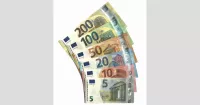
The euro is the official currency of the eurozone which...
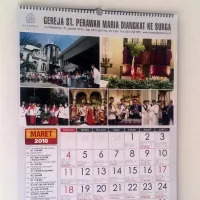
Calendars are systems for organizing days by naming time periods...
Trending

48 minutes ago Google Maps to fully function in South Korea after data agreement.
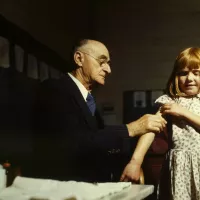
2 hours ago CDC Panel to Discuss COVID-19 Vaccine Injuries Following RFK Jr.'s Meeting
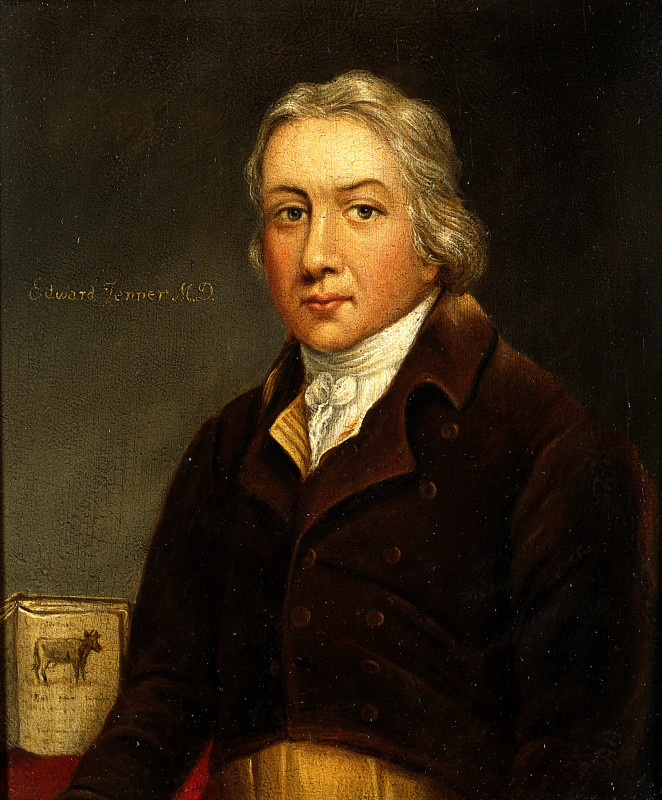
49 minutes ago CDC Panel to Discuss COVID Vaccine Injuries Following RFK Jr.'s Meeting

2 hours ago Casey Means' Surgeon General Nomination Faces Scrutiny Over Mainstream Medicine Criticism and Birth Control Views.
3 hours ago Punch, the lonely baby monkey, goes viral and wins hearts worldwide.
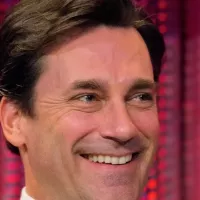
4 hours ago Jon Hamm Discovers Viral Dancing Meme; Reacts to Meme-Worthy Status at 54.
Popular

Jesse Jackson is an American civil rights activist politician and...

Barack Obama the th U S President - was the...

Susan Rice is an American diplomat and public official prominent...

XXXTentacion born Jahseh Dwayne Ricardo Onfroy was a controversial yet...

Michael Joseph Jackson the King of Pop was a highly...

Kashyap Pramod Patel is an American lawyer who became the...